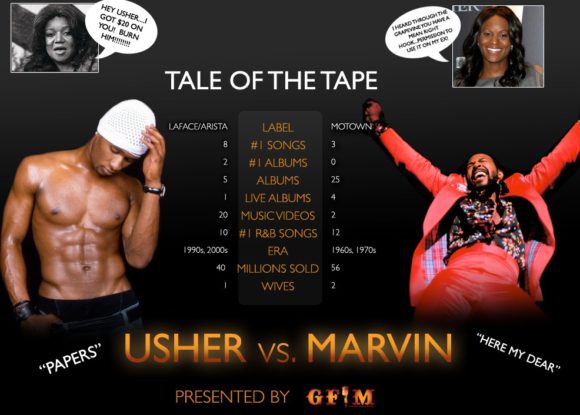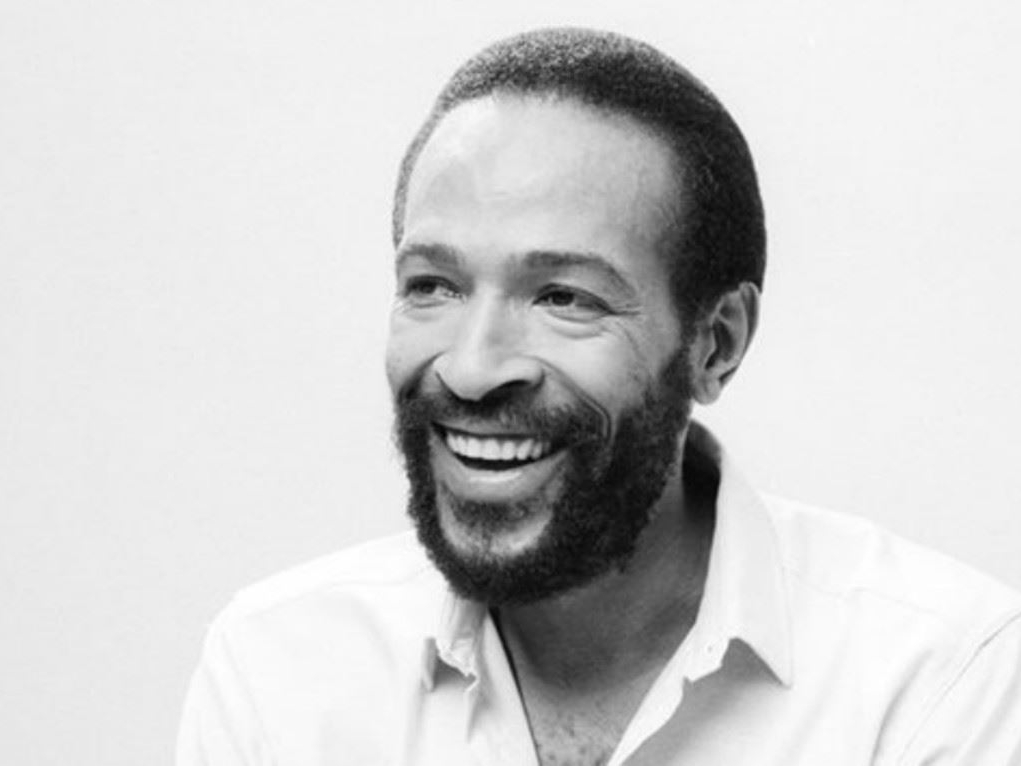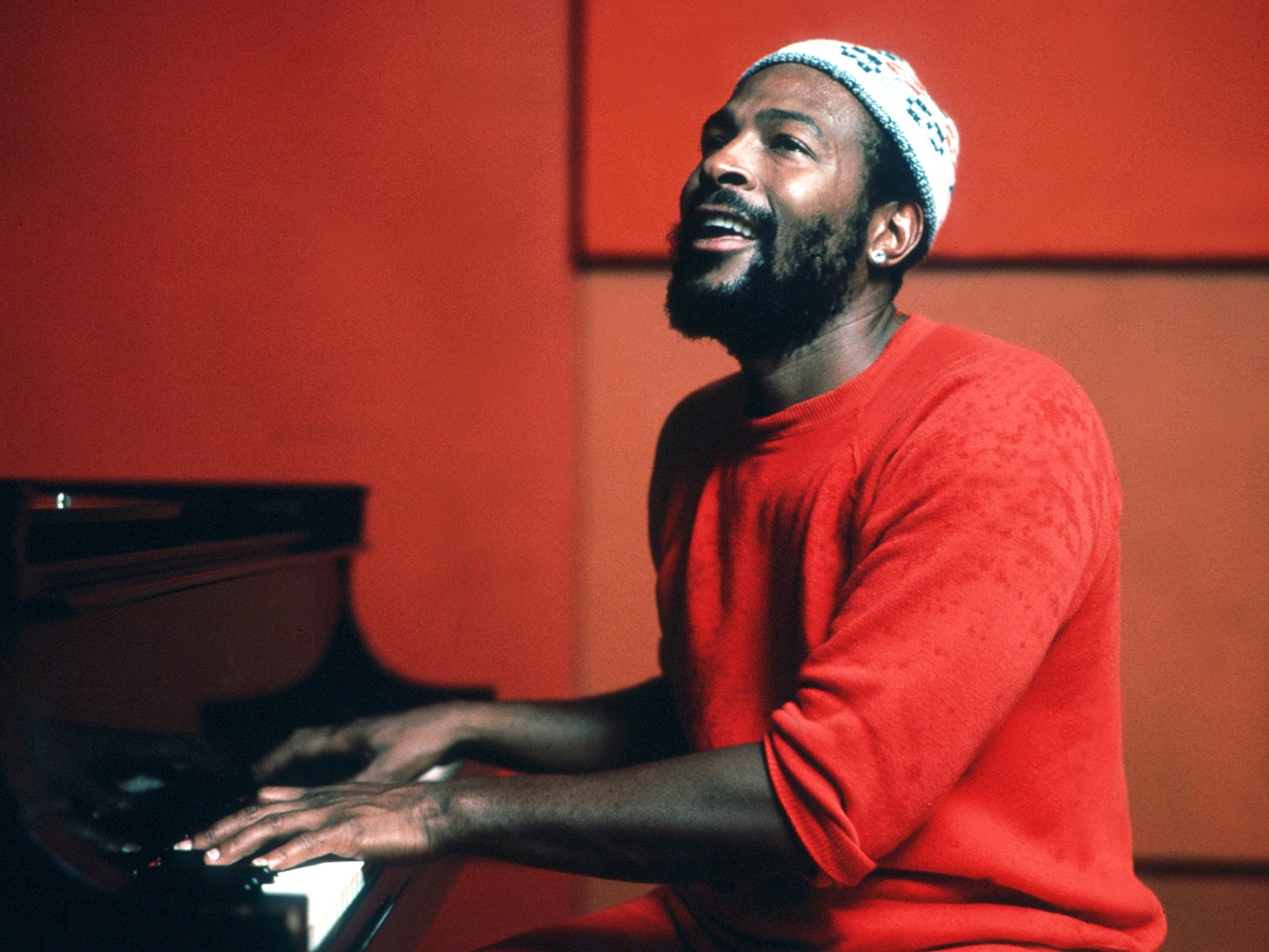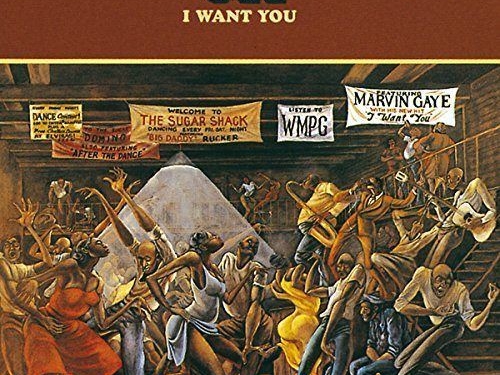
This post is a special edition of our “Bridging the Gap Matchup Series”.
Prelude
Every generation has its musical heroes and sheroes and as fans we often support the “home team” even through a “rebuilding season”. If an artist is fortunate enough to last beyond a couple of albums and carve out a body of work that spans almost two decades, you can best believe that some material of a very personal nature that chronicles the strife that is concomitant to life will be created.
When this phenomenon occurs: Art imitating life and life imitating art, we find a wide range of reaction from the audience as we should because art should be provocative. But what moves a piece of music from the generic casting of “art” into the realm of “great art”? How do we qualify or even quantify “great”? Is it possible? When we make statements about what we believe to be great how much bias do we bring to the table based on our love of nostalgia? These are some of the issues I would like for us to consider as we ring the bell for the “Main Event”.
The Scene
Neil Sedaka told you all not once but twice that “Breaking Up Is Hard To Do”, oh well I guess sometimes you just have to touch the stove. Suffice to say Usher and Marvin faced very public and very contentious endings to their respective marriages. By the same token, the millions who have or who will face divorce in their lifetime will not have access to a mass media outlet like a major record label to “vent”. In the triangle of “truth” who really knows the who, the what, the how or the why these relationships ended as they did. As a writer it’s not my job to play judge and jury and as an observer I realize that nothing is as simple as black and white, he did, she did. As we examine this music together I would like for all of us to consider the tension, drama and complexity that makes up this institution known as relationships.
Say What!?!?
“I’m losin my mind, cant figure out who’s wrong or right, I know it’s you I love, but then I also know it’s you I don’t like. You claim you hate who I was, but that’s the reason you here now.”-Usher “Papers”
“Hope you enjoy, reminisce, be happy, think about the kisses and the joy. But there were those other moments too, the times that were cloudy and grey. Bad.”-Marvin Gaye “Here, My Dear”
01 – Here, My Dear
I offer this section as an opportunity to analyze what is being said by these two authors devoid of the music. Love and hate are only separated by a period or a comma. Those are some very close quarters. It makes you wonder where the imaginary line of demarcation of married/divorced resides. The fact that Usher and Marvin both admit each side of the emotional coin displays a certain vulnerability that is often repressed in the machismo-laden rites of passage in this society. Translation: It would have been very easy for them to write the predictable “I hate that so and so” song and it probably would be equally predictable that going that route would prove to be quite commercially viable. I don’t make the rules I just report them.
Don’t bore us get to the chorus!
The central theme to just about every song resides in the chorus. Let’s see what these two have wrought:
“This is what you wanted. Here, dear, here it is. Here, my dear, here it is.”-Marvin
“I’m ready to sign them papers, papers, papers I done took all I can take but u leave me no options girl. I can’t deny how much I love you, I done gave up errthing I had to as hard as it is I’m afraid I gotta say, I’m ready to sign them papers, papers, papers. I done took all I can take but u leave me no options girl.”-Usher
01 – Papers
Marvin’s chorus is a very simple declaration that only appears as his closing statement. Usher’s chorus positions itself as an incantation obsessed with the symbolic representation of the “papers” as a panacea for his relationship woes.
In both instances heavy emphasis is placed on the token that is used as the rate of exchange for their respective impending freedom. Marvin’s subtle “here” as opposed to Usher’s not so subtle “papers”.
The Music
“Here My Dear” is equal parts 50’s street corner harmonizing, 70’s “rapp” and “I’m about to take my seat” sanctified minister’s whoop. The mostly spoken lead vocal is supported by an amen chorus of drums, synthesized strings, electric piano, guitar and bass with the aforementioned doo wop backing vocals. Marvin chooses to use triple meter for his sermon which ironically enough is a Sunday morning favorite. The vocal is delivered in an almost lethargic, declarative style that seems it could have been fueled by Marvin’s stress reliever of choice. What is undeniably certain about this song is that Marvin had something to say and he uses just about all of the allotted 2:52 to say it.
“Here, My Dear” was not a single so it seems that it may have not been under the same “I need hits” microscope as Usher’s “Papers”. When the Here, My Dear double album set was released in 1978 it was a critical and commercial flop. Over time as it has been rediscovered and re-imagined it is now held in a much higher regard with fans and critics a like. Often, when it comes to great art, only time will tell.
“Papers” by contrast has all the trappings of a song demanding attention. Musically the song stays in the shallow end of the pool, never wanting to stray too far from the concrete edge. Certainly my expectation is not the Rite of Spring (this is pop music) but if lyrically you are going to pelt me with the same words over and over again, please have some contrast musically that creates a sense of balance. True to form there are gimmicky keyboard riffs galore throughout the track designed to distract you from the fact that it’s pretty much the same 2 bar phrase throughout the entire 4:24. 2 bar phrases over extended periods of time can be quite effective in the hands of a skillful arranger who understands how to create tension and release. Another thought that crossed my mind is that if you reach a point where you have nothing else to say, just stop talking or playing, singing or even sequencing. It can be very effective, as Miles Davis observed “Music is the space between the notes”.
Postlude
Folks (ok, Grown Folks of all ages), we really have to demand more of ourselves across the musical board. I view all of us as a collective: Artist, Writer, Producer, Consumer etc.,. It seems that we have reached an era where music in the main is essentially automated. The reason that music has become automated is not the fault of technology, there’s always an option to turn the power button off. It’s not the fault of the television that children don’t know how to read, it is the responsibility of those given charge over those children to strike a balance between the proxy of television and the productivity of reading. The same thing holds true for music. It is the responsibility of those who understand how to create a more informed musical product to teach those who can’t. Notice, I didn’t say better product because that’s a silly argument to have in the first place(beauty is in the eye of the beholder after all). The person who can only speak their thoughts is called a storyteller, the person who can write their thoughts down and speak them is called an author. There’s a big difference between the two. We need more authors.
Now, I don’t want anyone reading this to misconstrue what I’m saying. I’m not advocating for creating a generation of just conservatory-trained musicians. Quite the contrary, I’m simply advocating for developing informed musicians. You could be a well-informed musician and not be able to read or write a note of music. The informed part comes from knowing the why and how of what you are doing, and it has been shown over time that often if you know better you do better. Not always, but more often than not.
Is 2009 that different from 1978? As far as relationships go probably not. As far as the world that affects those relationships much has changed, but that’s the nature of time. Whose corner do you stand in? Do you believe that thirty years from now we will have Usher’s music in a head to head matchup with the crooner of 2039? Or does the buck stop here? Will the music of 2009 endure or is it just a disposable commodity? We would to hear from you! Please let us know who you have ahead on points!
Ivan Orr is a multi-instrumentalist, composer, performer, and writer. A native of Charlottesville, Virginia Ivan was involved with the forming and nascent days of The Music Resource Center as its first Program Director. A graduate of Virginia Commonwealth University’s Department of Music, Ivan currently resides in Richmond, VA where he maintains an active performance and production schedule while serving as the Music Editor for Grown Folks Music, a position he has held since 2010.
RELATED POSTS
April 2, 2011
Marvin on Film
December 30, 2009
Dear 1999: A Group Blogging Event Organized by musicianwages.com
August 6, 2014
Erick Sermon feat. Marvin Gaye – Music
March 12, 2012




I have to say that even though I like “Papers”, I have to give it up to “Here, My Dear”. While both songs are touching on the aftermath of love gone wrong through divorce, Marvin’s version is so conversational. He only sings a short verse in the song and speaks almost like he’s doing a toast at the dinner table. Between the flow of the song and his tone of voice, it’s just a great song and it’s believable. “Papers” has a more aggressive appeal to it. Usher sounds like, “I can’t wait to get rid of this woman. Lawd, where do I sign.” It’s still a cool song but Marvin has that finesse. Who’s that cool taking about a divorce?!? His approach to the song is different from what you may expect in this subject matter. That in itself makes it the winner in my opinion.
Agreed. We want folks to know that great music didn’t die with Luther and that there’s plenty of quality music, by talented artists still being made, you just wont’ find it in your “traditional” outlets. Hence, “Bridging The Gap”. Glad you get it and appreciate it. Looking forward to continuing to build with you going forward, since I see how much your love and appreciate the music via your blog too!
Well we really appreciate your kind words. I don’t think anyone could have said it better in regards to how often that term “Grown Folks Music” is used as a catchall for those radio hits of yesteryear. That has been one of my biggest complaints regarding certain formats and shows that claim to embrace the “Grown Folks” moniker. So much great music exists that makes absolutely no since that the format is so narrow. But then again, in most cases it’s not about the music.
I’m just glad you really enjoy Grown Folks Music. When most people say “Grown Folks Music” what they are really saying is all the radio hits from their parents music collection. They don’t dig in the crates with the expectation of finding better music than ever hit the radio. The fact that you are pitting a song from my favorite Gaye album against a Usher song, let’s me know that you guys love music. MOST casual music fans have never heard the song let alone the masterpiece double album! Thanks for digging deep!!
Excellent points DJ Judah! I agree that as a concept album goes “Confessions” would be a more suitable comparison to “Here, My Dear”. We decided to pair “Papers” to “Here, My Dear” on a single to single basis because “Papers” and all that surrounds the song and artist for better or worse is happening right now. We then offered “Here, My Dear” to grapple with the question is the now that different from the then musically, culturally etc., I too think Usher is a tremendous vocalist and I have many favorites in his body of work, probably just not this one. But we wanted to be as objective as possible, because it is entirely too easy and predictable to be dismissive. Thanks again for reading and joining the conversation.
I love Usher Raymond. I would rather you compare “Confessions” against “Here My Dear” because it was a complete album much like the artist did back in the 60’s anad 70’s. I listened to both albums during some difficult times in my 15 year marriage. Both albums cover the range of emotion. “When Did You Stop Loving Me”, “Sparrow”, “I Met A Little Girl” and “Everybody Needs Love” are comparable to “Confessions” “Caught Up” “Truth Hurts” “Burn” and ‘Can You Handle It”. With that being said “Papers” is not sounds more like a throw away single. A reject from the Confessions album. I do not want to say my generation was better like most people my age would. Usher will be remembered unlike other artist from today. So I will say I listen to both Confessions and Here, My Dear with the same respect! Now that’s what I call Grown Folks Music